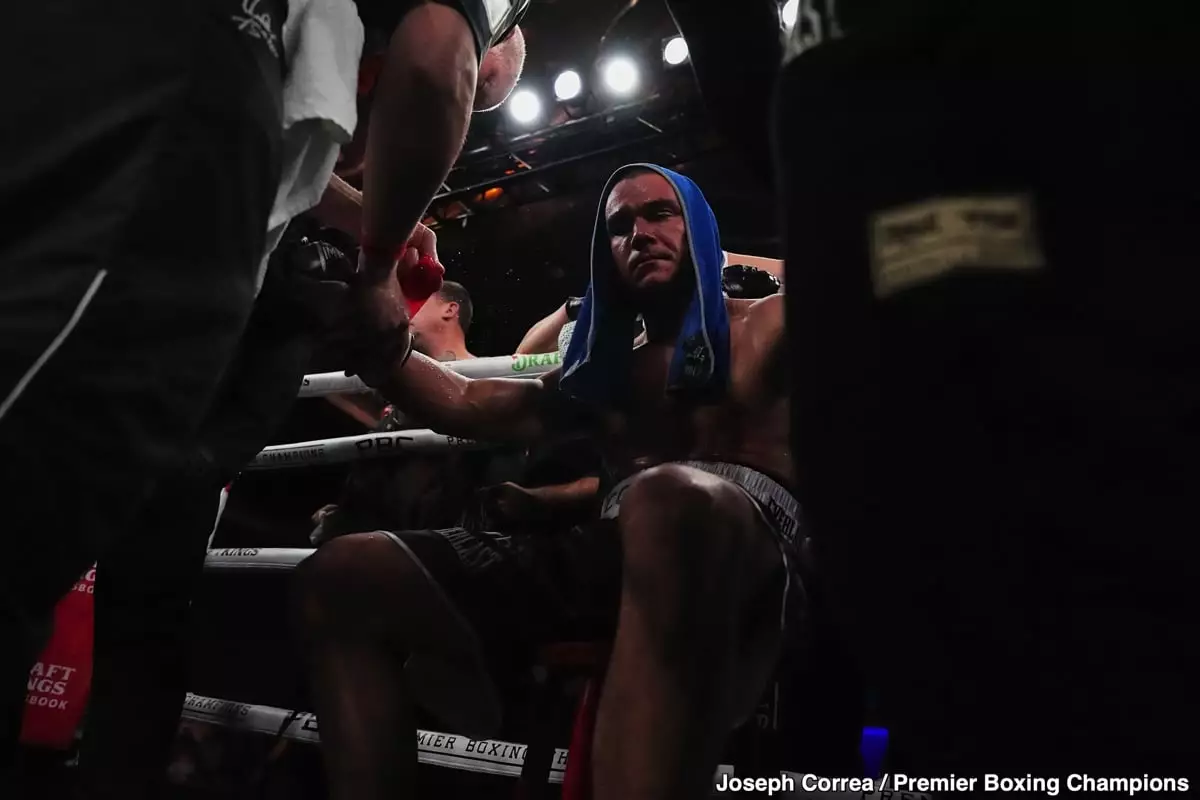Tim Tszyu, the Australian professional boxer, faced a significant setback in his career following a devastating third-round knockout by Bakhram Murtazaliev, the IBF junior middleweight champion. As Tszyu approaches the pivotal milestone of turning 30 on November 2, 2023, he stands at a crossroads that demands introspection, re-evaluation, and strategic adjustment in his approach to boxing. This article examines the lessons learned from this fight and discusses the necessary steps for Tszyu’s resurgence in the competitive world of boxing.
The loss to Murtazaliev was not merely a defeat; it was a wake-up call. Tszyu, known for his aggressive style and powerful punches, found himself outmatched by Murtazaliev, who showcased a combination of size, power, and superior boxing skills. The fight highlighted critical flaws in Tszyu’s game, primarily his defensive techniques and head movement. Keith Thurman’s observations shed light on these deficiencies, revealing that Murtazaliev effectively utilized jabs and hooks to dismantle Tszyu’s defense from the very beginning. When a boxer is unable to adapt during a fight—choosing relentless aggression over strategic retreat—the result can be catastrophic, as Tszyu learned firsthand.
Moreover, Tszyu’s decision-making during the fight raised questions about his tactical awareness. Despite sustaining a knockdown in the second round, he opted to continue pressing forward instead of choosing to box and regain composure. This lack of tactical nuance not only led to subsequent knockdowns but ultimately culminated in a defeat that casts doubt on his readiness to compete at the highest level.
To pave the way for a successful comeback, it is imperative for Tszyu to engage in a strategic reassessment of his fight preparation and training regimen. The criticisms surrounding his performance underscore the need for improvements in two specific areas: defensive techniques and boxing IQ. Head movement is essential for avoiding strikes, and a failure to incorporate such fundamentals can prove disastrous against top-tier competitors.
Furthermore, Tszyu may need to consider a reevaluation of his training structure. Seeking guidance from a new trainer experienced in refining technical skills could be beneficial. It is imperative that he enhances his boxing intelligence—an area where he can significantly improve—before facing another top-draw opponent. A concerted focus on mastering fundamental boxing techniques would not only aid in avoiding future knockouts but could also enhance his overall performance in the ring.
While the prospect of facing top-ranked fighters can be tempting for any competitor seeking fame, Tszyu must recognize the benefits of taking a step back in the short term. Engaging in matches against lower-level opponents could provide him with the necessary opportunities to refine his skills without the immediate pressure of championship bouts. Such bouts can serve as a confidence booster, allowing Tszyu to better assess and resolve the vulnerabilities that were brought to light in his fight against Murtazaliev.
Additionally, the heavyweight load of facing established contenders back-to-back may have exacerbated his struggles. Rather than diving into tough competition once more, adopting a careful, staged approach to rebuilding his career may yield better long-term results. Investors in Tszyu’s career, including his promoter, must carefully strategize his next moves to avoid rushing Tszyu into high-stakes situations that could continue to hinder his growth.
Embracing the Journey: A Path Forward
For Tim Tszyu, the road to redemption will undoubtedly be challenging yet rewarding. Acknowledging his limitations and actively working to overcome them through targeted training and strategic matchmaking will be vital. The experience gained from setbacks can pave the way for remarkable comebacks, and Tszyu is not too far gone at the age of 29.
The sporting arena is filled with athletes who have faced adversities only to rise again with renewed vigor and enhanced skills. As Tszyu reflects on his career trajectory, he should embrace this journey toward becoming a more versatile and skilled boxer. Building upon the lessons learned and refining his technique will ultimately determine his legacy in the boxing world and whether he can reclaim a position among the elite in the 154-pound division.
A well-planned comeback, underscored by tactical adjustments and a focus on skill development, will be essential for Tim Tszyu. As he takes this time for reflection and growth, the hope remains that he can return stronger and wiser, armed with the tools to not only compete but potentially thrive in the squared circle.

